No. 74 (598) september 2025 г.
The EU–UNEP Partnership to support locally led climate actions in Fergana Valley
Ferghana City, Uzbekistan – 25-26 August 2025
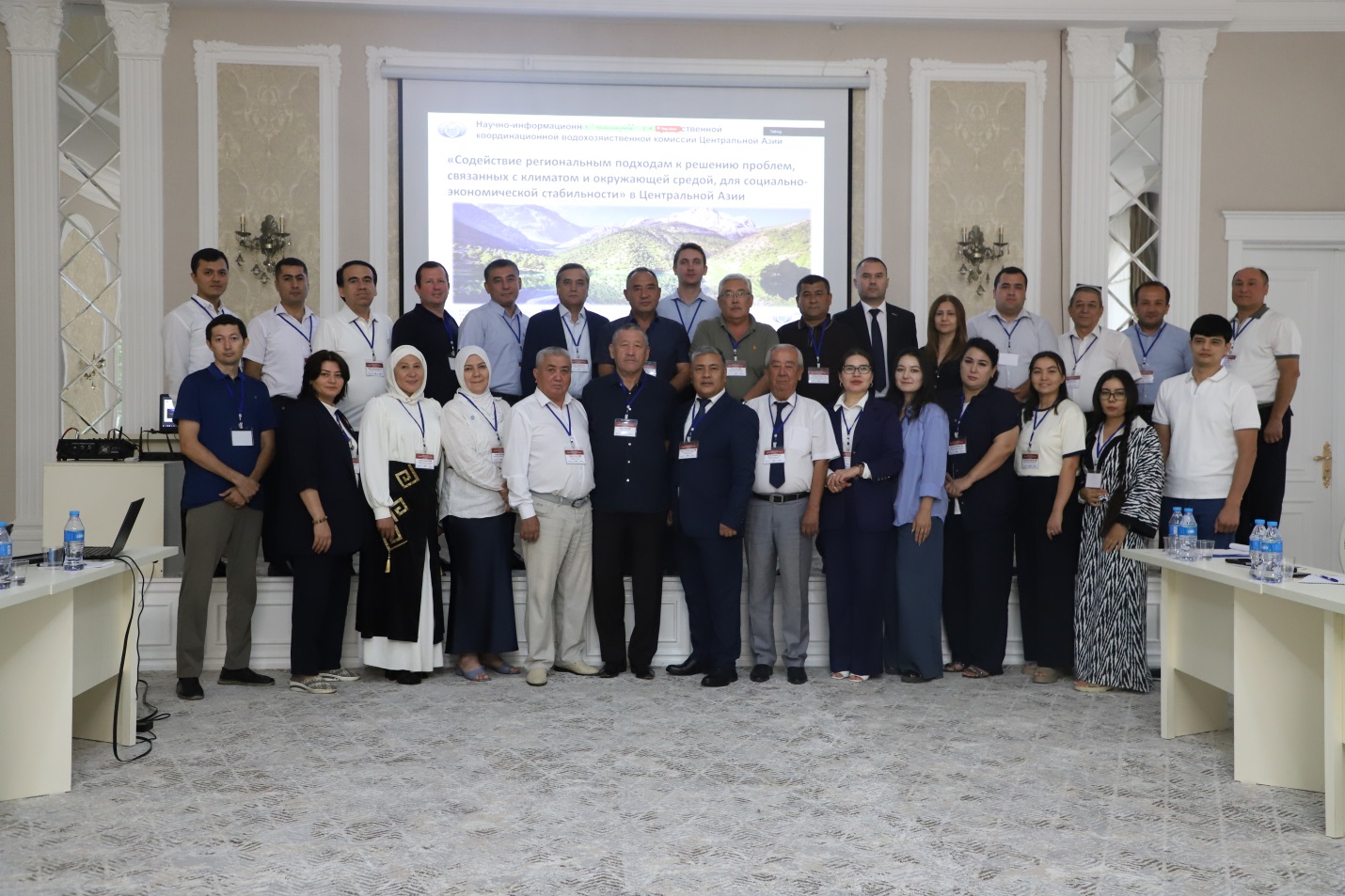
On 25 August 2025, the regional initiative for Central Asia, within the EU–UNEP Partnership on Climate, Environment and Peace, was launched by the Scientific Information Center of the Interstate Commission for Water Coordination of Central Asia (SIC ICWC). The initiative, funded by the European Union with technical assistance from the United Nations Environment Programme (UNEP), will support local communities in Kyrgyzstan, Tajikistan and Uzbekistan to design and implement locally led adaptation actions, with a focus on nature-based solutions, that address climate-related risks to socioeconomic stability and development.
In the opening session, Ms. Jana Kurpisa, Programme Manager at the Delegation of the European Union to Uzbekistan, emphasized the EU’s commitment to supporting climate adaptation as a pathway to sustainable socio-economic development and a stronger regional cooperation. Dr. Sherzod Muminov, Deputy Director of SIC ICWC, emphasized the exceptional relevance and importance of cooperation within the framework of the project among the countries of the region. The EU is financing the Central Asia action with a budget of EUR 1.7 million, of which over 70% will directly support local communities’ initiatives through grants.
Eight local grantees announced
During the meeting, the eight local civil society organizations, which were selected through an open and competitive call for proposals launched in June 2025 by SIC ICWC, were officially announced. The organization will receive grants and technical support to design and implement locally led adaptation actions in climate hotspots across the Ferghana Valley. Working in close partnership with their communities, these organizations will identify and implement nature-based solutions that strengthen risk reduction and climate resilience, while fostering social cohesion and supporting socioeconomic stability. The grantees will also join a regional network and community of practice to exchange knowledge, share lessons learned, and promote good practices. To formalize their commitment, all eight organizations signed grant agreements with SIC ICWC as part of the regional initiative in Central Asia.
The selected organizations are:
- Central Asian Alliance for Water and Ecology (CAAWE) – Kyrgyz Republic, Osh (Aravan)
- New Rhythm – Kyrgyz Republic, Osh (Karasuu)
- Orchun / Independent Ecological Expertise – Kyrgyz Republic, Jalal-Abad (Suzak)
- Youth Group on Protection of Environment (YGPE) – Tajikistan, Soghd (Kanibadam)
- Safi / Subhi Tandurusti – Tajikistan, Soghd (Asht)
- Agency for Rural Societies Development – Tajikistan, Soghd (Jabbar-Rasulov)
- Ho'qandi Latif Kelajagi / Ferghana Branch of NGOs Association – Uzbekistan, Ferghana (Ferghana)
- Salomatlik plus Ecologiya / Hamroh – Uzbekistan, Andijan (Pakhtaabad)
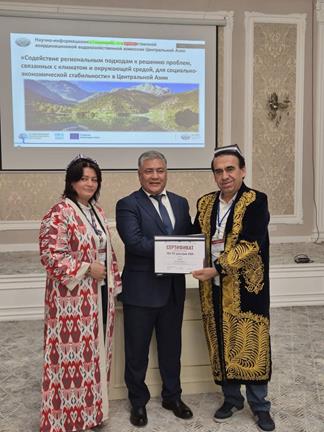
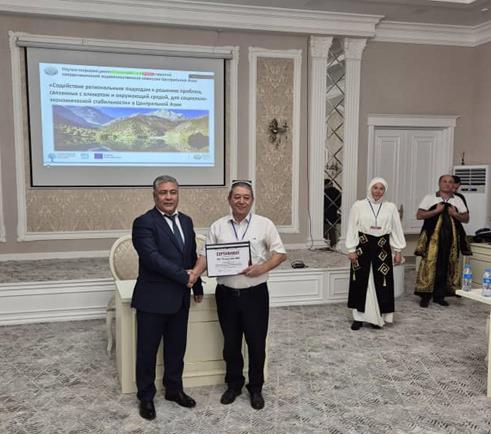
Following the kick-off meeting, participants visited key sites in the Ferghana region to directly observe the local impacts of climate change and the innovative solutions that can inspire project implementation. In one of the region’s climate “hotspots,” they witnessed how shifting rainfall patterns and water scarcity are affecting agriculture and livelihoods. At a pilot solar photovoltaic plant, also funded by the EU, they saw how renewable energy is reducing pressure on natural resources and contributing to more resilient local economies. The visit concluded at the Water School in Ferghana City, an educational hub that raises awareness about water scarcity, climate change and sustainable resource management, where participants discussed practical approaches to water management and learned how community-driven education initiatives are helping farmers and youth adapt to climate challenges.
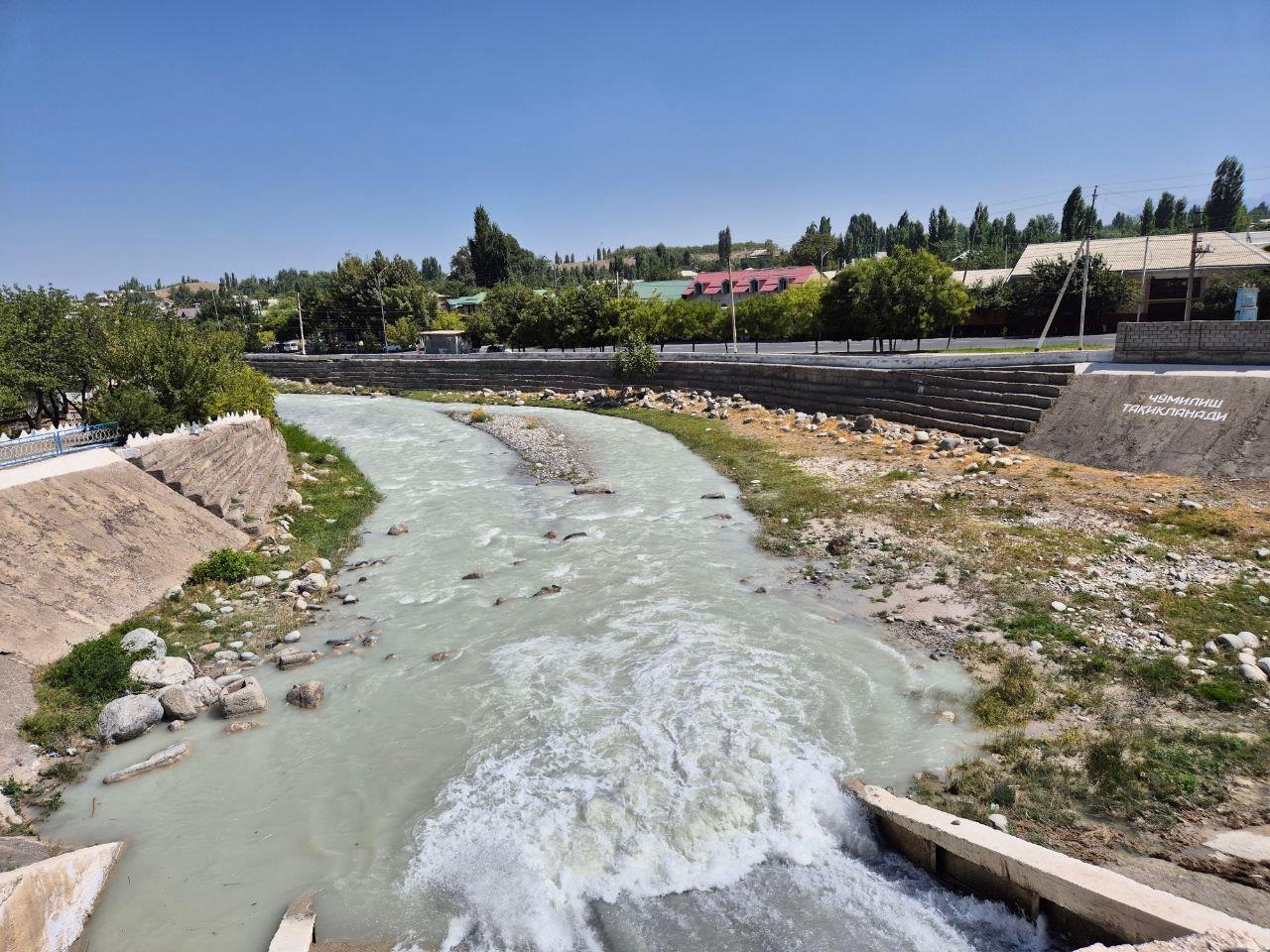
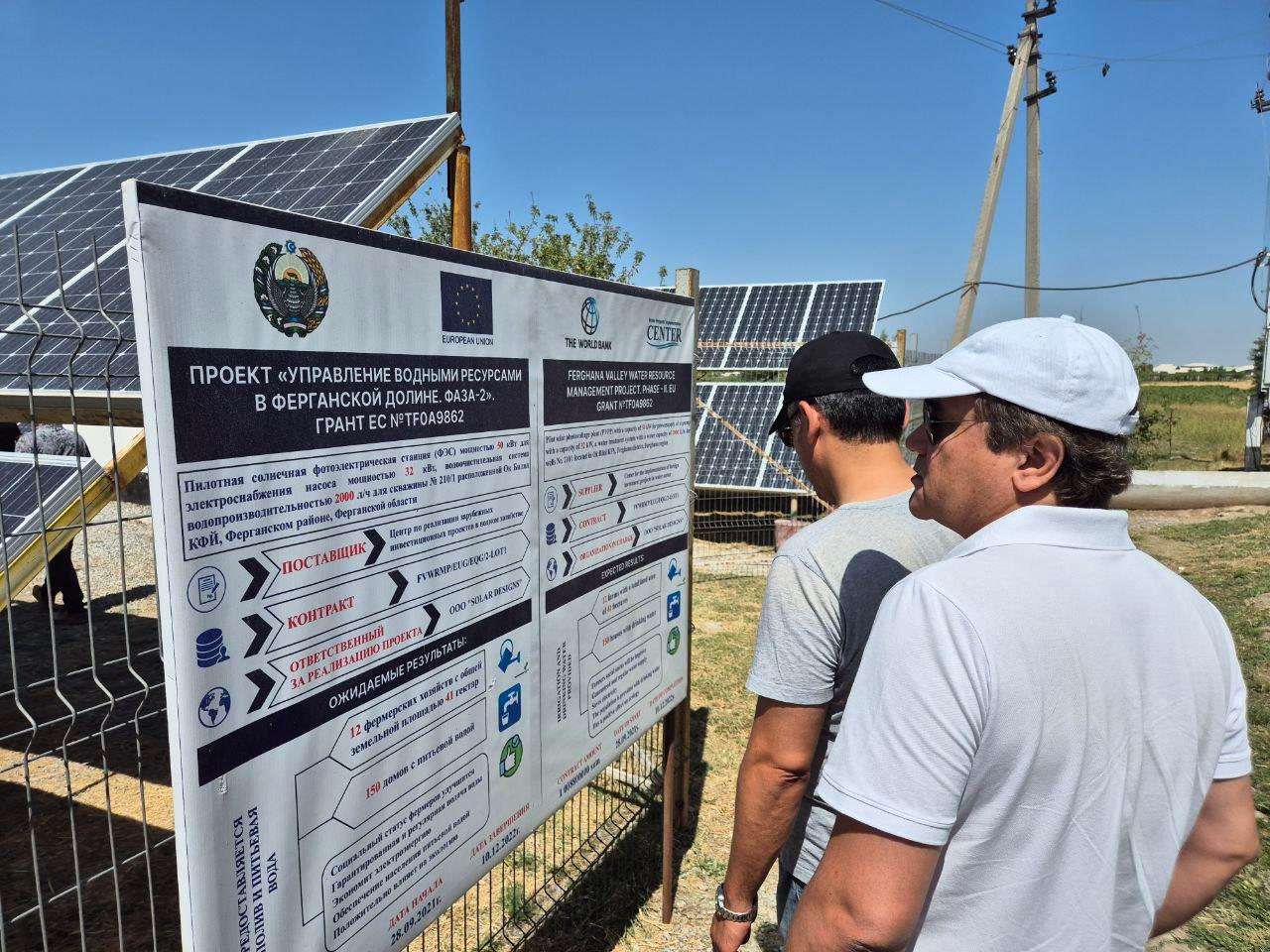
Partnership background
The EU–UNEP Partnership on Climate, Environment and Peace was first launched in 2017 to test nature-based solutions for building resilience linked to environment, climate and social challenges across the globe. Having completed a successful first phase (2017–2022), with pilot projects in Nepal and Sudan, the partnership entered Phase II (2022–2027) with expanded coverage in seven regions: Horn of Africa, West Africa, Middle East, Central and South Asia, and South and Central America.
In Central Asia, the focus is on the Ferghana Valley, one of the most climate-vulnerable regions in the world, where millions depend on irrigated agriculture and livestock for their livelihoods. With changing precipitation patterns and mounting water scarcity, as a result of climate change, the valley faces increasing risks of poverty, competition over natural resources, and social tension. By empowering local actors with knowledge, networks and resources, the partnership aims to build resilience, strengthen cooperation, and ensure that community voices inform national and regional policymaking.
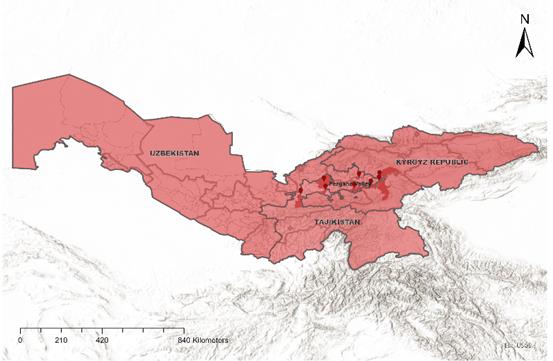
Looking ahead
Over the next 2 years (2025-2027), the Central Asia programme will:
- Support local organizations to design and implement context-specific, locally led climate adaptation action, with a focus on nature-based solutions.
- Facilitate a regional Community of Practice, connecting grantees and stakeholders across borders.
- Feed lessons learned into policy processes at national, regional and international levels.